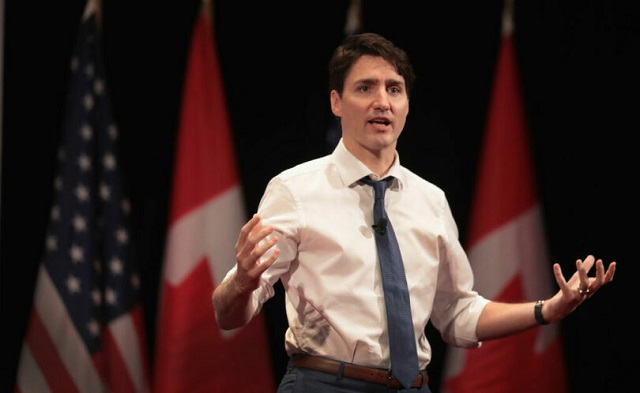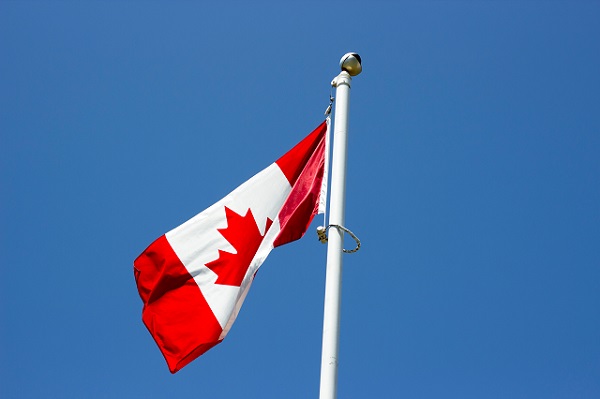Alberta
Premier Kenney addresses Alberta’s COVID-19 economic crisis

From the Province of Alberta
Additional financial support for Albertans and employers
More relief is on the way for Albertans and Alberta employers.
The government has made three significant decisions that will give Albertans and Alberta employers additional supports as they deal with the impacts of the COVID-19 crisis.
“Our priority is to keep our province strong while we get through these difficult times together. We’re doing everything we can to support Albertans and Alberta employers through this crisis. That’s why we’re focused on creating tangible savings for households and freeing up necessary cash for businesses to help them through these unprecedented times.”
Education property tax freeze
During a pandemic, Alberta households should not need to worry about paying additional property taxes.
- The government will immediately cancel the decision made in Budget 2020 and will freeze education property taxes at last year’s level.
- Reversing the 3.4 per cent population and inflation adjustment will save Alberta households and businesses about $87 million in 2020-21, which means $55 million for households and $32 million for employers.
- The government expects that Albertans and Alberta businesses will fully realize these savings and that municipal property tax levels will not be increased as a result of the lower provincial education property tax levels.
Education property tax deferral for business
When Alberta businesses are operating, they employ Albertans who can support themselves, their families and help keep the economy running. Effective immediately, the government will defer education property tax for businesses for six months.
- In the next six months, $458 million in cash will remain with employers to help them pay employees and continue operations.
- The government expects municipalities to set education property tax rates as they normally would, but defer collection. Deferred amounts will be repaid in future tax years.
- The government encourages commercial landlords to pass on these savings to their tenants through reduced or deferred payments. This will help employers continue to manage their debts, pay their employees and stay in business.
- Businesses capable of paying their taxes in full are strongly encouraged to do so. This will assist the province in being able to support Albertans through this pandemic.
“Eliminating the scheduled adjustment of education property taxes and deferring collection of non-residential property taxes will result in savings to Albertans and improved business cash flow. This measure will help Alberta households and businesses during this time – we want to keep Albertans working while we get through these difficult times together.”
WCB premiums deferral for private sector businesses and support for small and medium businesses
Private sector employers can save money on their WCB premium payments at a time when they need it most. These actions ensure the sustainability of the workers’ compensation system and that injured workers continue to receive the benefits and supports they need to return to work.
- Private sector employers will have immediate financial relief by deferring WCB premiums until early 2021, effectively for one year.
- Employers who have already paid their WCB premium payment for 2020 are eligible for a rebate or credit.
- For small and medium businesses, the government will cover 50 per cent of the premium when it is due.
- Large employers will also receive a break by having their 2020 WCB premium payments deferred until 2021, at which time their premiums will be due.
- Paying 50 per cent of small and medium private sector WCB premiums for 2020 will cost government approximately $350 million.
Additional measures to help families, students and employers
Previously announced measure taken by the province to protect Albertans and assist businesses include:
- The collection of corporate income tax balances and instalment payments is deferred until Aug. 31, 2020. This gives Alberta businesses access to about $1.5 billion in funds to help them cope with the COVID-19 crisis.
- $50 million to support emergency isolation for working adult Albertans who must self-isolate, including persons who are the sole caregiver for a dependent who must self-isolate, and who will not have another source of pay or compensation while they are self-isolated. It is distributed in one payment instalment to bridge the gap until the federal emergency payments begin in April.
- Utility payment deferral for residential, farm, and small commercial customers to defer bill payments for the next 90 days and ensure no one is cut off from electricity and natural gas services during this time of crisis.
- A six-month, interest-free moratorium on Alberta student loan payments for all individuals who are in the process of repaying these loans.
COVID-19 a ‘devastating blow’ to mountain towns that rely on tourism
Alberta
Former senior financial advisor charged with embezzling millions from Red Deer area residents

News release from Alberta RCMP
Former senior financial advisor charged for misappropriating nearly $5 million from clients
On April 4, 2024, the RCMP’s Provincial Financial Crime Team charged a Calgary resident for fraud-related offences after embezzling millions of dollars from his clients while serving as a senior financial advisor.
Following a thorough investigation, the accused is alleged to have fraudulently withdrawn funds from client accounts and deposited them into bank accounts he personally controlled. A total of sixteen victims were identified in the Red Deer area and suffered a combined loss of nearly $5 million.
Marc St. Pierre, 52, a resident of Calgary, was arrested and charged with:
- Fraud over $5,000 contrary to section 380(1)(a) of the Criminal Code; and,
- Theft over $5,000 contrary to section 344(a) of the Criminal Code.
St. Pierre is scheduled to appear in Red Deer Provincial Court on May 14, 2024.
“The ability for financial advisors to leverage their position to conduct frauds and investment scams represents a significant risk to the integrity of Alberta’s financial institutions. The investigation serves as an important reminder for all banking clients to regularly check their accounts for any suspicious activity and to report it to their bank’s fraud prevention team.”
- Sgt. John Lamming, Provincial Financial Crime Team
The Provincial Financial Crime Team is a specialized unit that conducts investigations relating to multi-jurisdictional serious fraud, investments scams and corruption.
Alberta
Political parties will be part of municipal elections in Edmonton and Calgary pilot projects

Strengthening Alberta’s local elections
Alberta’s government is introducing legislation to ensure Albertans can rely on transparent, free and fair elections, and municipally-elected officials have clearer accountability measures.
In a democratic society, Albertans expect their local elections to be free and fair, and their elected officials to be held to account by clear rules that govern their local councils. The Municipal Affairs Statutes Amendment Act proposes amendments to the Local Authorities Election Act (LAEA) and the Municipal Government Act (MGA) to add greater transparency to local election processes and ensure local councils and elected officials continue to remain accountable to the citizens who elected them.
“Our government is committed to strengthening Albertans’ trust in their local governments and the democratic process that elects local leaders. The changes we are making increase transparency for Alberta voters and provide surety their votes will be counted accurately. We know how important local democracy is to Albertans, and we will work with local authorities to protect and enhance the integrity of local elections.”
Local Authorities Election Act
Albertans expect free and fair elections and that’s why it’s important we strengthen the rules that govern local elections. To strengthen public trust in local elections, Alberta’s government will eliminate the use of electronic tabulators and other automated voting machines. All Albertans should be able to trust the methods and results of local elections; requiring all ballots to be counted by hand, clarifying rules and streamlining processes for scrutineers will provide voters greater assurance in the integrity of the results.
All eligible Albertans should be able to vote in local elections without impediment. Alberta’s government will limit the barriers for eligible voters to cast a ballot by expanding the use of special ballots. Currently, special ballots can only be requested for very specific reasons, including physical disability, absence from the municipality, or for municipal election workers. By expanding the use of special ballots, the government is encouraging more voter participation.
Amendments in the Municipal Affairs Statutes Amendment Act would increase transparency in local elections by enabling political parties at the local level. Political parties would be enabled in a pilot project for Edmonton and Calgary. The act will not require candidates to join a political party in order to run for a local or municipal office, but will create the opportunity to do so.
In addition, proposed changes to the Local Authorities Election Act would allow municipalities the option to require criminal record checks for local candidates, thus increasing transparency and trust in candidates who may go on to become elected officials.
Municipal Government Act
The role of an elected official is one with tremendous responsibility and expectations. Changes proposed to the Municipal Government Act (MGA) will strengthen the accountability of locally elected officials and councils. These include requiring mandatory orientation training for councillors, allowing elected officials to recuse themselves for real or perceived conflicts of interest without third-party review and requiring a councillor’s seat to become vacant upon disqualification.
If passed, the Municipal Affairs Statutes Amendment Act will also unlock new tools to build affordable and attainable housing across Alberta. Proposed amendments under the MGA would also create more options for municipalities to accelerate housing developments in their communities. Options include:
- Exempting non-profit, subsidized affordable housing from both municipal and education property taxes;
- Requiring municipalities to offer digital participation for public hearings about planning and development, and restricting municipalities from holding extra public hearings that are not already required by legislation; and
- Enabling municipalities to offer multi-year residential property tax exemptions.
Municipal Affairs will engage municipalities and other partners over the coming months to hear perspectives and gather feedback to help develop regulations.
Quick facts
- The LAEA establishes the framework for the conduct of elections in Alberta municipalities, school divisions, irrigation districts and Metis Settlements.
- The MGA establishes the rules governing the conduct of local elected officials once on council, as well as the overall administration and operation of municipal authorities in Alberta, including any policy those authorities may wish to implement.
Related information
-

 Censorship Industrial Complex2 days ago
Censorship Industrial Complex2 days agoNow We Are Supposed to Cheer Government Surveillance?
-

 Alberta2 days ago
Alberta2 days agoRed Deer Doctor critical of Alberta’s COVID response to submit report to Danielle Smith this May
-

 Business1 day ago
Business1 day agoTaxpayers criticize Trudeau and Ford for Honda deal
-

 Business1 day ago
Business1 day agoDon’t be fooled by high-speed rail
-

 Alberta1 day ago
Alberta1 day agoActivity-Based Hospital Funding in Alberta: Insights from Quebec and Australia
-

 Business1 day ago
Business1 day agoUN plastics plans are unscientific and unrealistic
-

 Addictions1 day ago
Addictions1 day agoBritish Columbia should allow addicts to possess even more drugs, federal report suggests
-

 Fraser Institute2 days ago
Fraser Institute2 days agoBill Maher is right about Canadian health care







